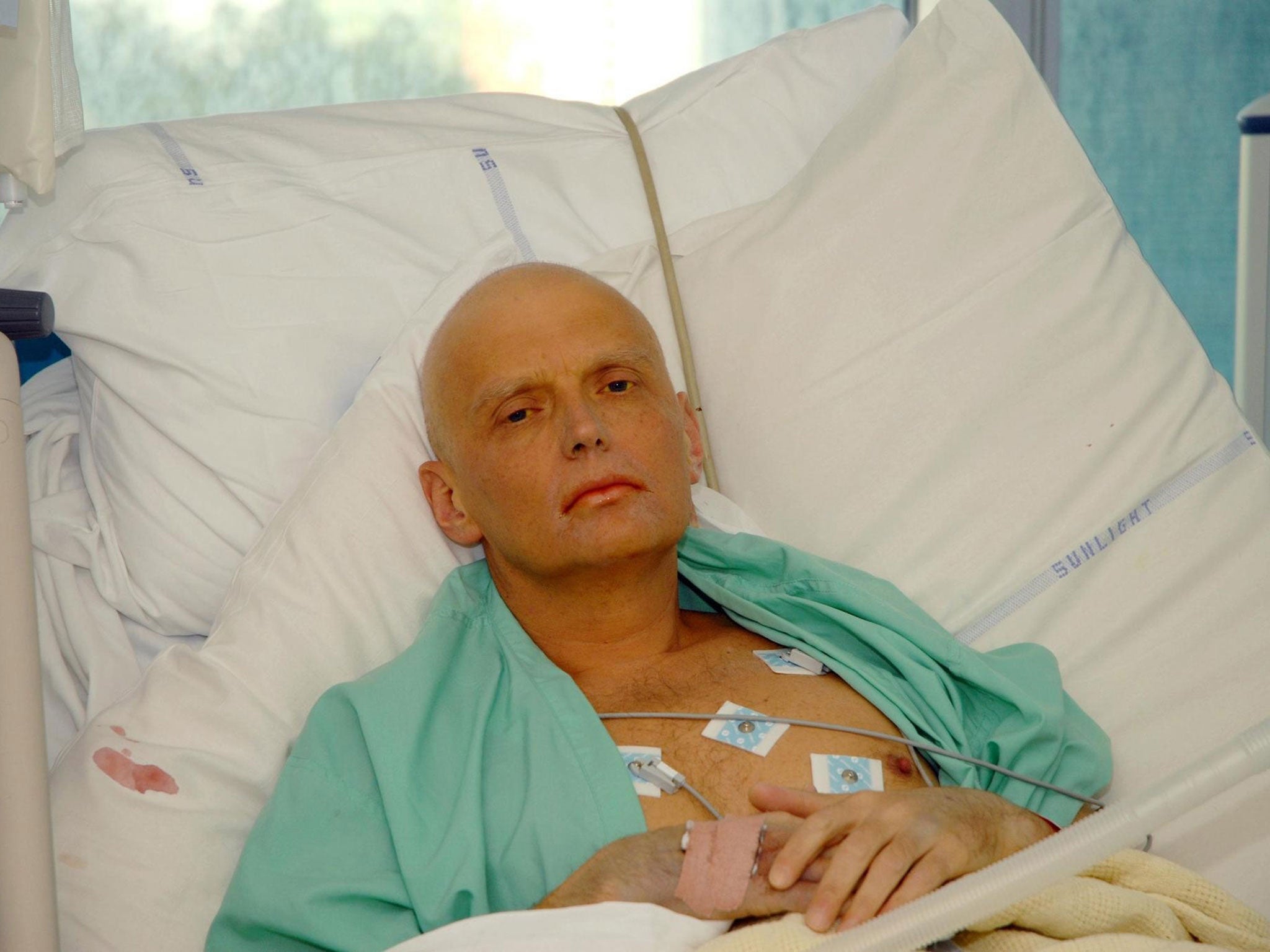High Court appears to back calls for public inquiry into death of former KGB agent Alexander Litvinenko

The High Court appeared to back calls for the government to concede to a public inquiry into the death of former KGB agent Alexander Litvinenko today.
Last month the judge in charge of the inquest - which has yet to take place more than six years after the 43-year-old spy died of polonium-210 poisoning - controversially indicated that the government's determination to keep many documents secret was making his task impossible.
Sir Robert Owen revealed that he was writing to Justice Secretary Chris Grayling to request that a public inquiry, which would have powers to consider secret evidence, be held instead and a decision is due next week. Today Lord Justice Goldring concluded that “there is much to be said for having a public inquiry”.
Mr Litvinenko died in November 2006 after meeting two former KGB contacts - Andrei Lugovoy and Dmitry Kovtun - at the Millennium Hotel in London's Grosvenor Square. His widow Marina Litvinenko has always maintained that her husband, who fled to the UK in 2000, was working with MI6.
Lawyers for Foreign Secretary William Hague applied for information relating to Russian state involvement, as well as how much British intelligence services could have done to prevent the death, be excluded from the inquest under Public Interest Immunity (PII) claims.
Sir Robert, who was appointed assistant deputy coroner, rejected parts of the PII application but upheld the Secretary of State's claim on the two central issues of Russian involvement and preventability.
Pointing out that he had no power to take evidence in secret, Sir Robert said he was in danger of failing “to discharge my duty to undertake a full, fair and fearless inquiry into the circumstances of Mr Litvinenko's death”.
The Foreign Secretary has now requested a judicial review into the parts of the PII request the coroner refused. Today, three High Court judges ruled that “interested persons” such as Mrs Litvinenko's legal team should not have a part in the judicial review.
In the judgement, Lord Justice Goldring added: “The Coroner has indicated that as things stand no meaningful inquest can be held. Were the Secretary of State to succeed in his present claim for PII, the Inquest would, on the Coroner's analysis, be even less meaningful. The Coroner's reasoning for the need of a public inquiry would be strengthened. Although certainly not a matter for me, it does seem there is much to be said for having a public inquiry.”
